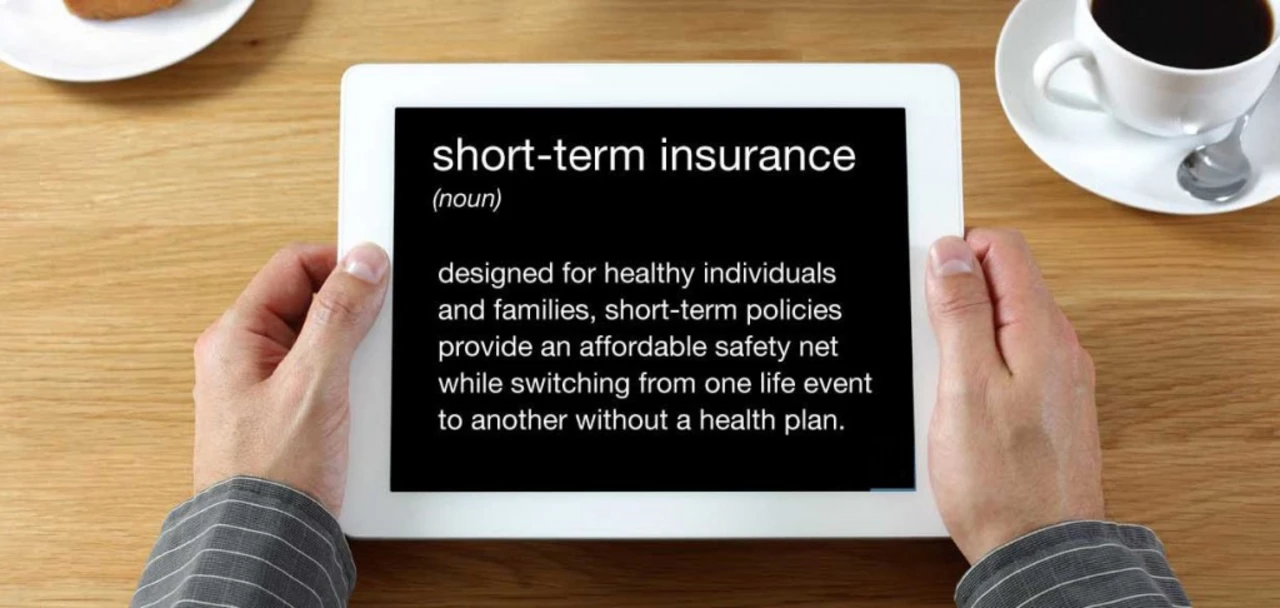Examining the Pros and Cons of Short-Term Health Insurance
Short-term health insurance is a type of health coverage that lasts for a limited amount of time. It is typically used as a stopgap measure until more comprehensive health insurance can be obtained. While there are some benefits to having short-term health insurance, there are also some drawbacks that should be considered before making the decision to purchase it. Let's take a look at some of the pros and cons of short-term health insurance.
Pros
One of the main advantages of short-term health insurance is its affordability. It is usually much less expensive than more comprehensive health insurance plans, making it an attractive option for those on a budget. Additionally, short-term health insurance often offers more flexibility with regards to coverage, allowing you to tailor the plan to meet your specific needs. Finally, short-term health insurance is often available with a much shorter application process than more comprehensive plans, making it an attractive option if you need coverage quickly.
Cons
A major downside to short-term health insurance is that it does not cover pre-existing conditions. This means that if you have a pre-existing condition, you may not be able to get the coverage you need. Additionally, short-term health insurance plans typically have much more limited coverage than more comprehensive plans, meaning you may not be able to get the treatments or medications you need. Finally, short-term health insurance is usually only valid for a set period of time, meaning you may need to renew your coverage or purchase a new plan when the time limit expires.
Conclusion
Short-term health insurance can be a good option for those who need coverage quickly or are on a tight budget. However, it is important to consider the pros and cons before making your decision. Make sure you understand the limitations of the plan and that you are able to get the coverage you need.
Breaking Down the Cost of Short-Term Health Insurance
Short-term health insurance is a popular option for those looking for a more affordable coverage option than a traditional plan. But is it actually worth the cost? Let's take a look at the costs associated with short-term health insurance, and how it compares to traditional health insurance.
Initial Investment
The initial investment for short-term health insurance is typically much lower than traditional health insurance. This is because it does not cover the same range of services and does not require the same level of underwriting. You can expect to pay anywhere from a few hundred dollars to a few thousand, depending on your individual needs and coverage plan.
Premiums
The premiums for short-term health insurance are lower than traditional health insurance because the coverage is more limited. This means that the premiums can be significantly lower than traditional plans, while still providing some coverage. The premiums can also vary based on your age and the type of coverage you choose.
Deductibles and Co-Pays
The deductibles and co-pays associated with short-term health insurance are typically much lower than those associated with traditional health insurance. This is because the coverage is more limited, so the cost of providing it is less. The deductibles and co-pays can range from a few dollars to a few hundred, depending on the plan you choose.
Out-of-Pocket Expenses
The out-of-pocket expenses associated with short-term health insurance are typically much lower than those associated with traditional health insurance. This is because the coverage is more limited, so the cost of providing it is less. The out-of-pocket expenses can range from a few dollars to a few hundred, depending on the plan you choose.
Limitations
It's important to note that short-term health insurance does not cover the same range of services as traditional health insurance. For example, it typically does not cover preventive care, prescription drugs, or mental health services. It also does not provide the same level of coverage for pre-existing conditions, so it's important to understand what your plan covers before signing up.
Is It Worth It?
The answer to this question depends on your individual needs and budget. If you need coverage for a short period of time and have limited funds, then short-term health insurance may be worth the cost. However, if you need more comprehensive coverage and can afford traditional health insurance, then it may be a better option.
Exploring the Alternatives to Short-Term Health Insurance
Short-term health insurance can be an attractive option for many people. It provides coverage for a short period of time, often at a fraction of the cost of other health insurance policies. But is it worth it? The answer depends on a variety of factors.
Before deciding whether or not to purchase short-term health insurance, it is important to consider the alternatives. There are several other health insurance options that may be more suitable for your situation. For example, many employers offer group health insurance plans that are often much less expensive than short-term health insurance. Additionally, there are also government-sponsored health insurance programs, such as Medicaid and Medicare, which may be more affordable for some individuals.
Another option to consider is a high-deductible health plan. These plans typically have lower monthly premiums than traditional health insurance plans, but they also require more out-of-pocket expenses before the insurance provider will begin covering the cost of medical services. High-deductible health plans can be an attractive option for those who are healthy and do not expect to require frequent medical services.
Finally, there is the option of purchasing an individual health insurance policy. These policies can be more expensive than short-term health insurance, but they also provide more comprehensive coverage. Additionally, individual health insurance policies are often more flexible and offer a wider range of benefits. It is important to weigh the pros and cons of individual health insurance policies before making a decision.
Ultimately, the decision of whether or not to purchase short-term health insurance depends on the individual's needs and budget. It is important to carefully consider all of the available alternatives and make a decision that is best for your specific situation. With the right information and research, it is possible to find an affordable and suitable health insurance policy.

